Can demolished pubs come back from the dead?
- Published
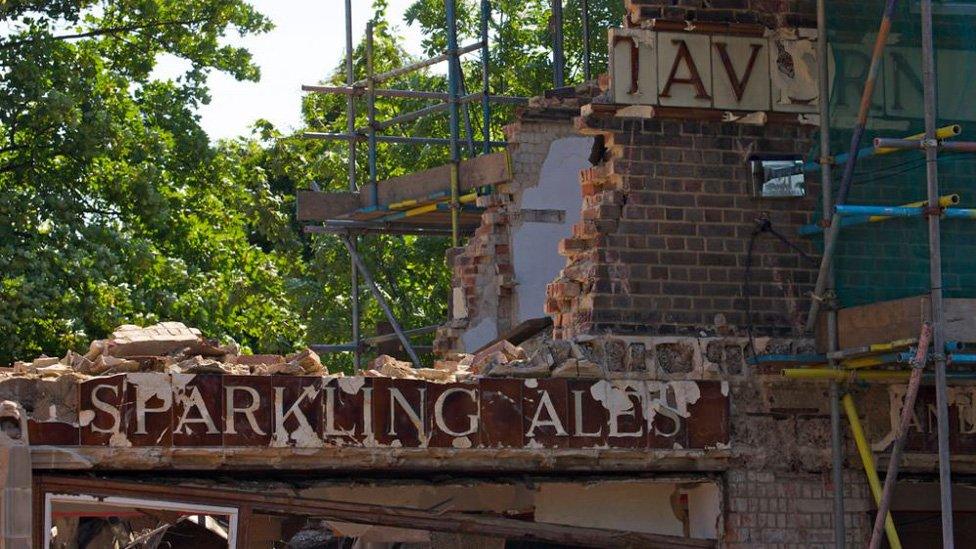
Remnants of the facade of the demolished Carlton Tavern. Photograph: Steve Reed/Flickr
Pubs demolished illegally must be rebuilt "brick by brick", councils have ordered. But is it really possible to do this?
The Alchemist bar wasn't in the best of states. It was looking a little tatty, in need of some renovation.
The pub-turned-cocktail bar served the residents of Battersea, south London, from the 1860s until it closed two years ago. Previously known as the Fishmongers Arms, and briefly as the Stencil Bar, its elegant, stuccoed frontage was a minor, if faded landmark.
Then, in May, most of the building was abruptly demolished. According to the council, the developer had not asked for permission, despite the Alchemist being in a conservation area. Only the front of the ground floor remains.
Amid complaints from nearby residents, Wandsworth Council, external issued an enforcement notice ordering developer Udhyam Amin to rebuild what had been lost, saying it must be "brick by brick". The council has now rejected an application for retrospective planning permission
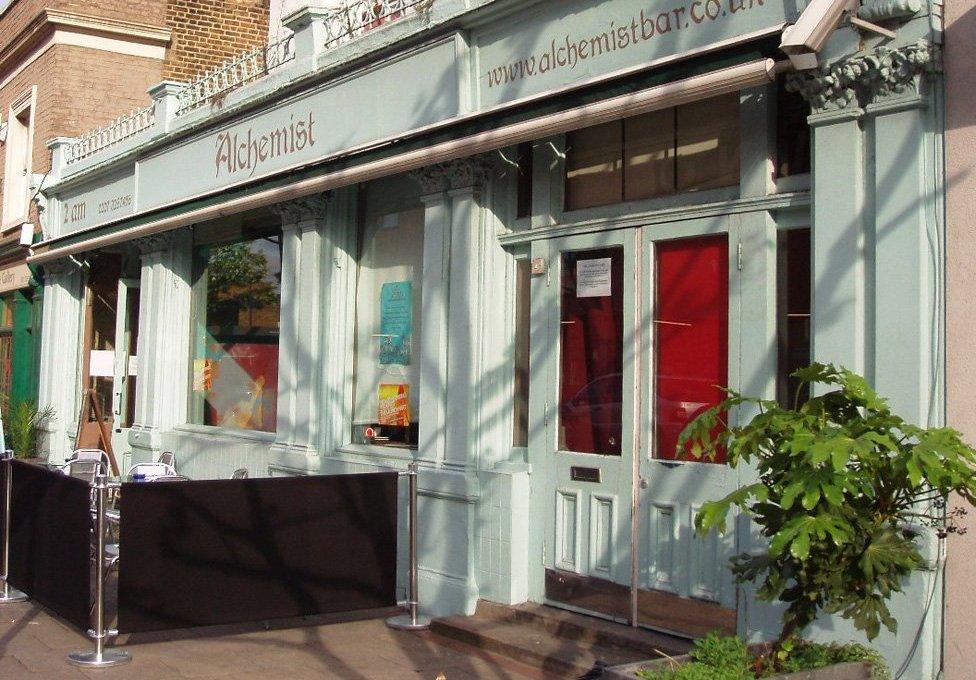
The Alchemist was formerly named the Fishmongers Arms. Photograph: Ewan Munro/Flickr
The Alchemist isn't the only pub that's been demolished without a local authority's say-so. The Ten Bells in Leeds, external, Kent, went last year, despite also being in a conservation area. The owners said it had become structurally unsound during alteration work.
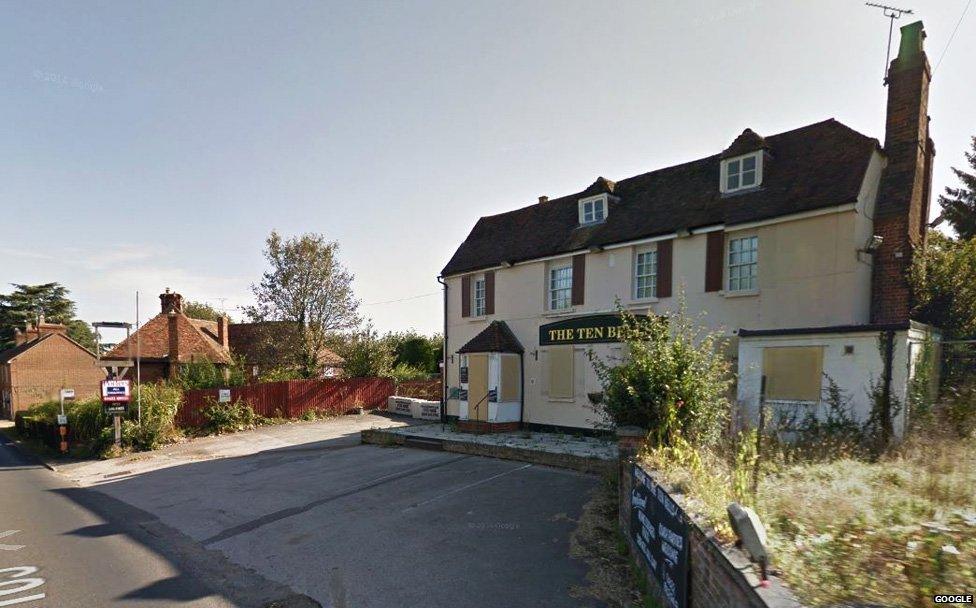
The Ten Bells in Leeds, Kent, went last year
Last month, Westminster Council ordered developer CLTX, whose director is Israel-based lawyer Ori Calif, to rebuild the Carlton Tavern in Maida Vale, external, north-west London, after it was knocked down in April.
Historic England, which advises the government on whether to award buildings listed status, describes such actions as "very rare", but it's not just pubs that have been affected. A Grade II-listed cottage in Putney, external, south-west London, was unlawfully demolished in 2007, despite a developer being refused permission five years earlier. He was fined £8,000 and ordered to rebuild the house, designed by the architect Erno Goldfinger.
The expression to rebuild "brick by brick" is in vogue among planning authorities but can this process, also known as a "facsimile" rebuilding, guarantee the new version is indistinguishable from the original?
"It's not happened yet to the best of my knowledge," says Dale Ingram, a pub heritage and planning consultant. "But the details of some historic buildings have been recorded thoroughly, making it possible."
This is particularly the case for the Carlton Tavern, external, built in 1920-21 by Charrington's brewery to serve the growing number of medium-rise blocks in the Maida Vale area, she adds. Historic England photographed it in some detail a few weeks before its demolition, as it was under consideration for Grade II-listed status. "I think that's quite wonderful," Ingram says. "With this extra information available there's no real reason for the reconstruction not to go ahead."
The Carlton Tavern was regarded as a good example of the "reformed pub", external, built in suburbs during the interwar period to attract families rather than just men searching for drinking dens.
"The Carlton might not have been regarded as a building of beauty," says Ingram, "but it had a sort of stately quality. It was very much a building if its time. It had a sense of modesty and dignity which was appropriate to the area."
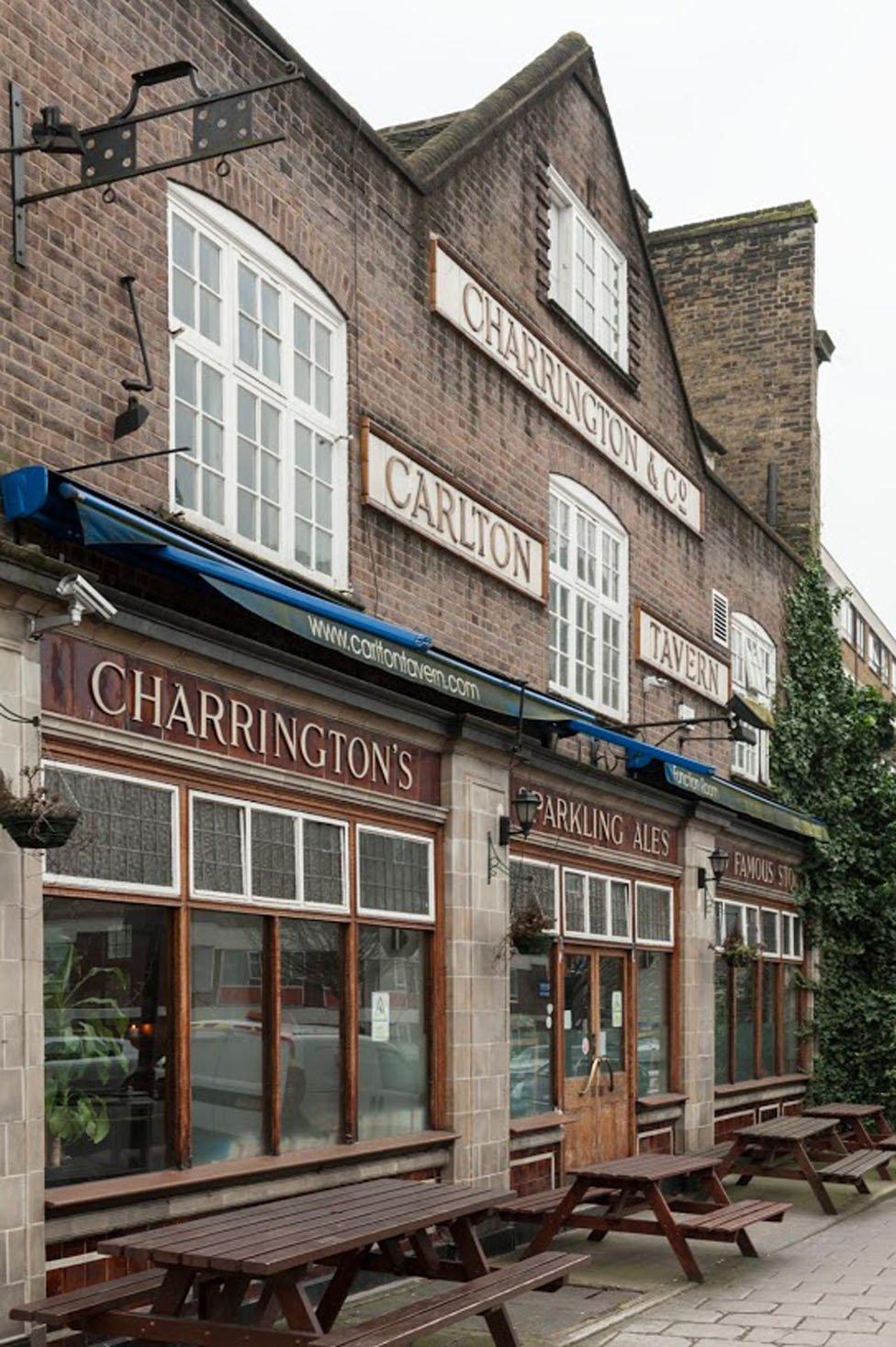
The Carlton was demolished without enough notice being given. Photograph: Historic England
Amin has now failed in his bid for retrospective planning permission for the demolition of The Alchemist. He argued that the building was found to be in a dangerous state, external while other work, for which he had gained permission, was going on. Knocking it down was an urgent necessity, he said. Amim has also said he will restore the facade, and accused the council of making a "fuss". The BBC attempted to contact him and Calif for comment.
The council has called the pub "a cherished heritage asset".
"A point of principle is at stake," says Christopher Costelloe, director of the Victorian Society. "This handsome Victorian pub made a positive contribution to the area for around 150 years. Its sudden demolition was illegal and deprived the local community of a chance to comment on the plans."
Any reconstruction is likely to involve looking at other reformed pubs to infer how they were built. Councils keep records of building plans, providing at least some clues as to the methods of construction. Rubble does the same for building materials.
"There is a whole industry for architectural salvage," says historian Ellen Leslie. "Many salvage companies will take the entire contents of a pub that is being legally demolished and sell these features on, from the bricks to the floor boards, the tiles, mirrors, even the bar itself.
"Also, there's local knowledge and memory. The Carlton Tavern and the Alchemist have been recently frequented so people in the area will remember how they looked."
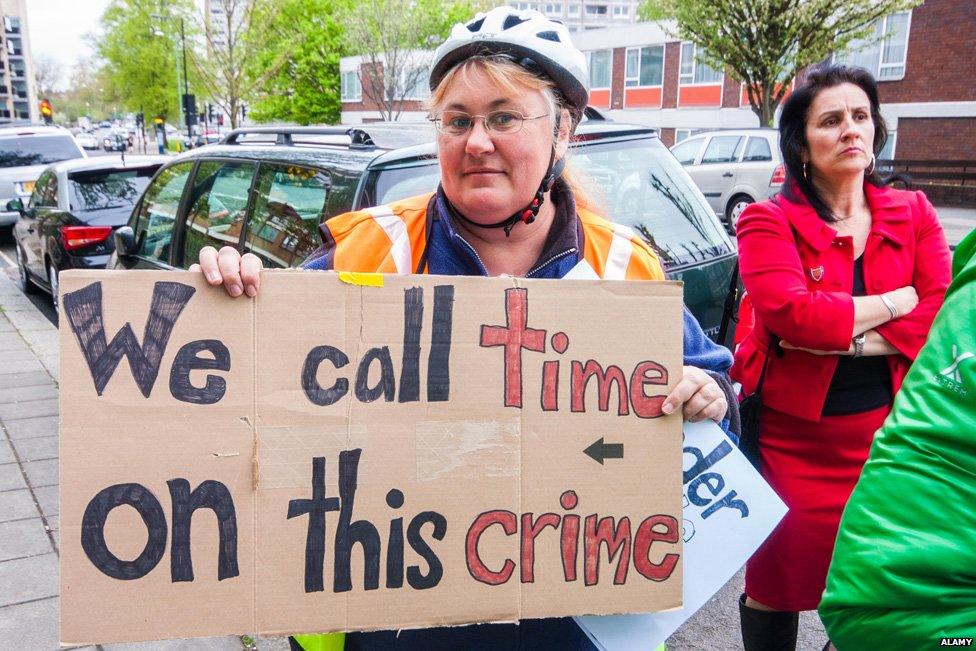
Locals outside the partially demolished Carlton Tavern in April 2015
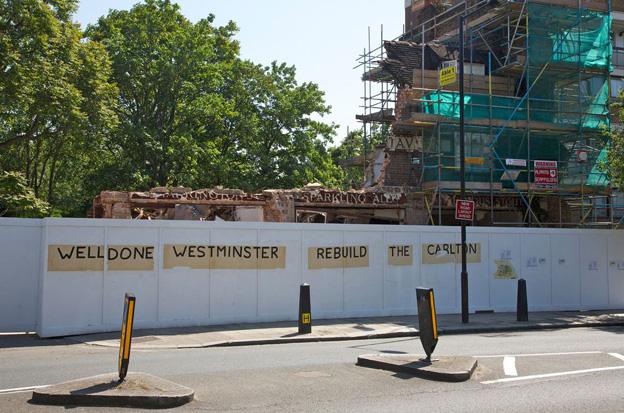
Locals campaigned to have the Carlton Tavern reinstated. Photograph: Steve Reed/Flickr
In England, those who demolish a listed building or a building in a conservation area without first getting listed building consent or planning permission can face a prison sentence, an unlimited fine and, of course, an order to put the whole thing back up again.
Outside conservation areas, the council must be given several weeks' notice. This didn't happen with the Carlton Arms, external, allowing Westminster to issue the rebuilding notice even though it wasn't listed or in a conservation area.
Pubs in areas of high housing demand are sought after by developers, especially in London and south-east England - a region that lost a net total of 266 pubs and bars between December 2014 and June this year, according to the Campaign for Real Ale.
The enforcement notice for the Carlton Arms came into effect on 24 July. But, even if the new doors open and customers return, will things ever be quite the same again?
"Yes, it is possible to recreate in facsimile," says Leslie. "There's a rich resource of information. It is just a matter of knowing where to look. But it should be very possible through diligent research to recreate these buildings and endeavour to revive the spirit of the building."
The Victorian Society's Christopher Costelloe is less optimistic. "A reconstructed building will not have the same character and patina as the original building," he says. "However, ordering a rebuild acts as a strong deterrent to other developers tempted to carry out illegal demolitions and ensures that the cityscape is not left scarred with an empty site or inappropriate development."

The Magazine at the bar


Subscribe to the BBC News Magazine's email newsletter, external to get articles sent to your inbox.